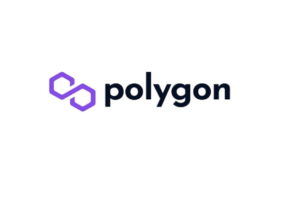Nearly 77% of the employers believe that not prioritizing Diversity, Inclusion and Belonging (DI&B) could adversely affect their organizational performance, revealed Indeed report.
The report named Uncovering Blind Spots: Outlook on Diversity, Inclusion and Belonging (DI&B) in Indian working environments, analyzed how arranged Indian bosses are with DI&B drives, the effect of such projects on the associations and how organizations can additionally accomplish incorporation at work environments.
As indicated by the report, 39% of bosses accept that DI&B mindfulness in their associations don’t exactly have what it takes. Furthermore, 40% of managers don’t have a proper way to deal with DI&B anyway are of the assessment that they are comprehensive or effectively putting separation down. This features the difference between what bosses accept and the truth of DI&B strategies inside the association. This is fundamentally because of different difficulties, for example, absence of administration vision or utilizing a one-size-fits-all approach that they face casually executing. Just 21% of associations studied have founded formal DI&B arrangements.
The overview likewise calls attention to that 73% of representatives wish to work at associations that effectively advance such drives. This is a demonstration of the way that culture assumes a solid part in drawing in, holding workers and henceforth managers need to enlist appropriate drives to settle the ability crunch issues they at present face.
Sashi Kumar, Head of Sales, Indeed India said, “More noteworthy acknowledgment of a different labor force has been making progress among Indian bosses for over 10 years now. The new arrangements of work because of the pandemic and the continuous ability war have sped up the excursion towards Diversity, Inclusivity and Belonging. Organizations comprehend that these drives are important in drawing in and holding ability, supporting advancement and usefulness, improving representative commitment, and answerable for generally speaking development of the organization. With almost 50% of all businesses overviewed (49%) having executed DI&B drives throughout recent months or more, we can see that focusing on DI&B is at the front line for associations. ”
Huge associations have been driving the bend with regards to DI&B drives. More than two out of three huge organizations know or extremely touchy to the reason with 37% of generally enormous associations overviewed having spread out formal DI&B strategies and 33% having embraced these arrangements. 73% of private company either have insufficient mindfulness or need mindfulness out and out, but a huge extent of medium-sized (19%) and little associations (12%) than enormous (10%) are on the way to formalization.
IT and Knowledge Services leads, with 33% of the respondents from the area having organized proper strategies, while 71% of the Media and Entertainment area respondents are wanting to formalize. The tech-center point, Hyderabad, has the most elevated extent of respondents who have established proper approaches (35%), while Delhi, with 71%, drives the goal to formalize and Chennai leads urban areas on reception with 36%.
Oblivious predisposition against racial gatherings, sexual orientations, LGBTIQ+, and other minimized bunches is a generally recognized peculiarity. Almost one of every four representatives accept that they are overlooked in group environments and gatherings (24%), feel genuinely or sincerely compromised (23%) or face slurs and insinuations during collaborations (22%). As per representatives reviewed, predispositions connected to handicap status (47%) and orientation and sexual direction (44%) overwhelm Indian working environments, trailed by age and conjugal status (36%) and religion, position and identity (33%).
According to bosses’ points of view, associations have organized different measures to address these worries of separation and be open to inclusivity. The most noticeable among these actions are refinement studios and correspondence drives (68%), Employee Resource Groups and comparable measures (41%), and advancing LGBTIQ+ privileges in the working environment (37%). This features that DI&B measures are basic in countering oblivious predispositions over the long haul.
According to the review, a greater part of the representatives observe that DI&B measures are vital and feel that businesses need to zero in additional on better policymaking and more powerful execution to support over the long haul. With only 21% of the respondents resting confidence in the current DI&B measures, representative doubt puts a question mark on their supportability. Be that as it may, throughout the long term, DI&B has acquired point of view as a wise ability methodology, in addition to a social decent practice. With developing proof of substantial results, for example, expanded efficiency, advancement and representative commitment, associations have started to carry out DI&B drives, regardless of formal strategies being founded. DI&B execution is speeding up, and a shockingly high extent of managers’ arrangement to carry out drives throughout the following 6 – year and a half.




